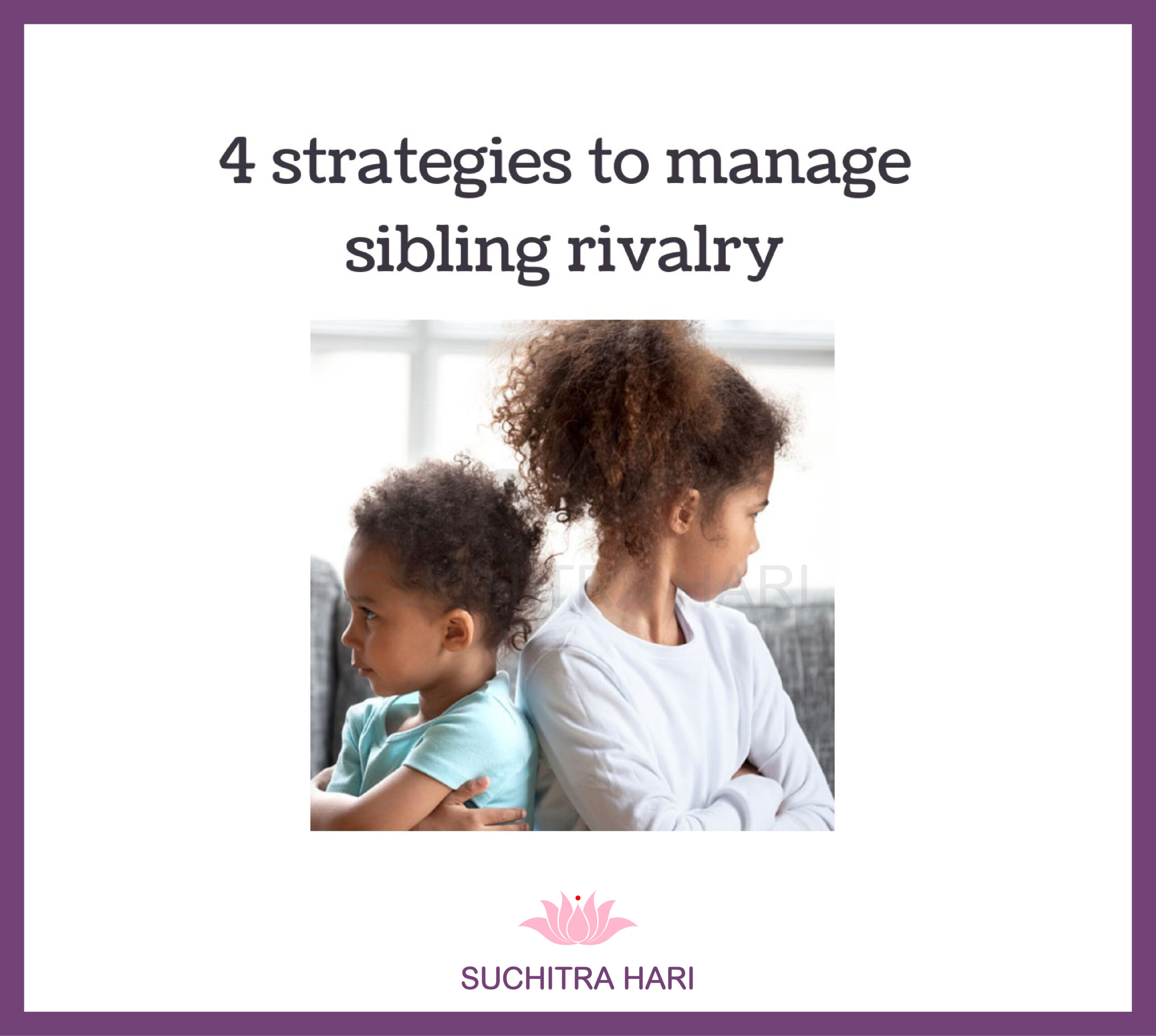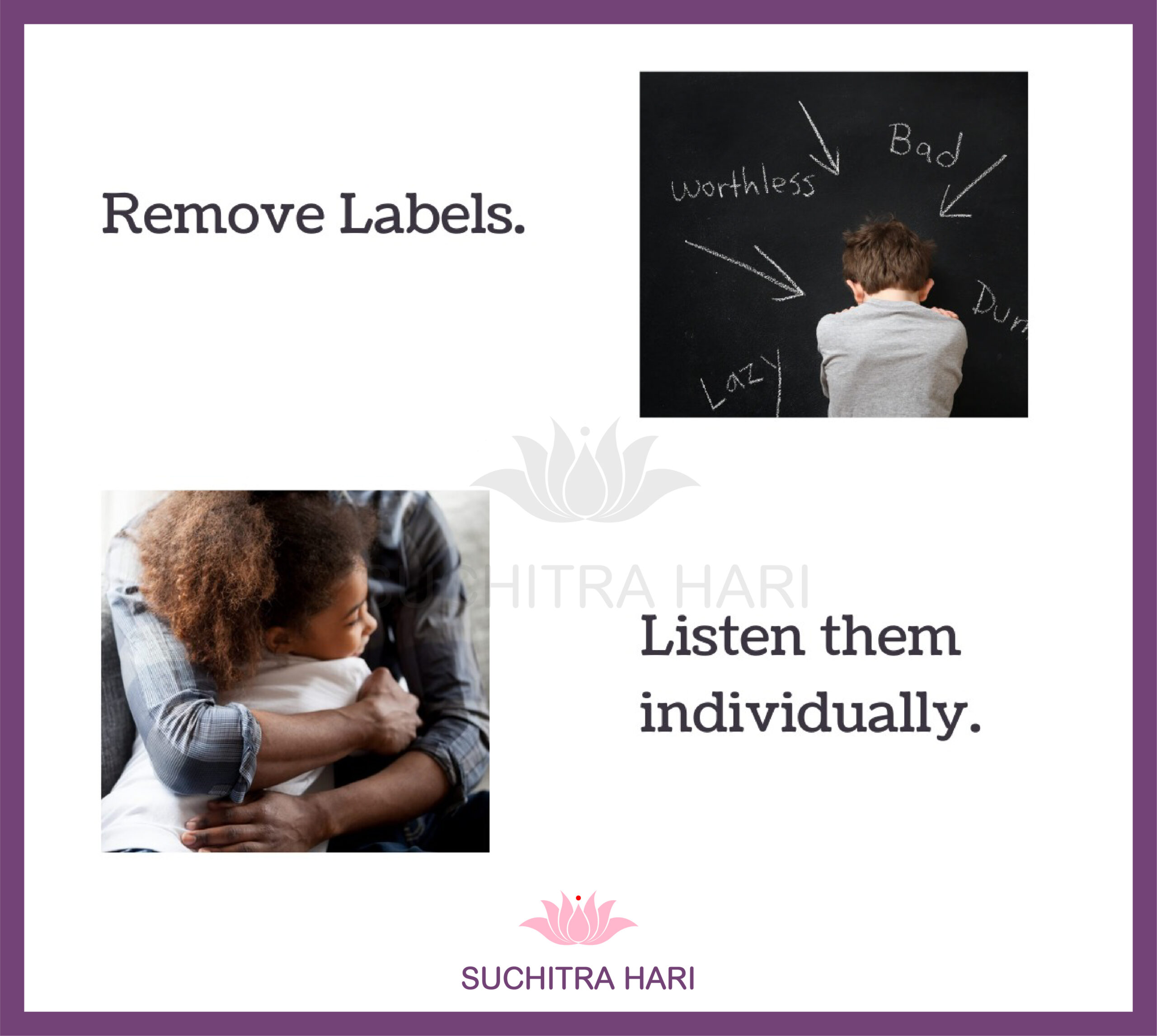
4 Strategies to Manage Sibling Rivalry
If you have more than one child, it’s certain that you’ve experienced sibling rivalry. Sibling rivalry can take in form of quarrelling, name-calling, physical fights, competition, comparison, taking one another’s belongings, and many other behaviours.
As parents, dealing with sibling rivalry can be frustrating, exhausting, and upsetting. Most parents will dream of their children being loving, kind, and supportive of one another.
Some of the common causes of rivalry could be clash of personalities – one of them may be quieter and other full of action, unresolved feeling of rivalry – child may feel mom is kinder to other siblings or favours the other sibling, resentful feeling – child may feel they don’t get as much as other sibling as he/ she is younger.
Some of the following strategies could help minimize sibling rivalry and help your children form a loving bond.


Free from Labels
It’s easy to categorise children such as, “you are the smart one” or “you are more talented”. But when it comes to children, labels given intentionally or unintentionally can dramatically increase the competition between siblings.
When you refer to one child as the “smarter one” the other child automatically thinks “I’m not as smart” or when one child is “more talented” the other assumes he/she must not be as talented.
If one child wears the “rough child” crown, the other child can feel superior automatically and assume the “well behaved” or the “easy going” crown. By labelling your children, you may unintentionally shelve your children into one role or another and create comparisons between siblings.
When you consciously ditch the labels, you will give “not so smart” child a chance to shine even if he/ she is not a star.
Hear both sides of the story
It takes two to tangle. Rarely will you know what lead to the fight, so listen to both, and give both a chance to be heard.
During a fight, most children are frustrated and emotional. Listen to your children and respect their feelings. Although their emotions are not an excuse for negative or aggressive behaviour, children are more likely to cooperate if they feel they are being heard. If your child starts to hit, reiterate that violence is not tolerated and is not acceptable. Tell them that using their words is the only way to solve a problem and you’ll be there to hear them out.


Use the opportunity to teach empathy
Sibling misunderstandings are perfect opportunities to teach your children to recognize and appreciate the thoughts, feelings, and desires of others. Looking at other perspective can foster care, respect, and fair-mindedness in children. This may help children realize and develop a mindset that others have minds of their own, which should be appreciated. When the differences occur, encourage your child to step into the shoes of their brother or sister by asking questions such as, “How would you feel if …?” an such questions can help children stretch beyond themselves and also develop an understanding that acknowledges feelings of others.
Calm Inner emotional distress with Bach Remedies
It is possible that even after above strategies, the child may still feel upset or feel angry for a while. You can use Bach remedies to help them get over these uncomfortable feelings. (Disclaimer: please note one must make a personal blend after consulting a BFRP (Bach Foundation Registered Practitioner)
Chicory can help relieve selfishness.
Holly can reduce jealousy and spitefulness.
Centaury can help the one who can’t stand for self.
Vine can help aggression and stubborn disobedience.
Willow can help resentment.
Cherry Plum when there is compelling urge to injure other.
Star of Bethlehem to ease sorrow.




